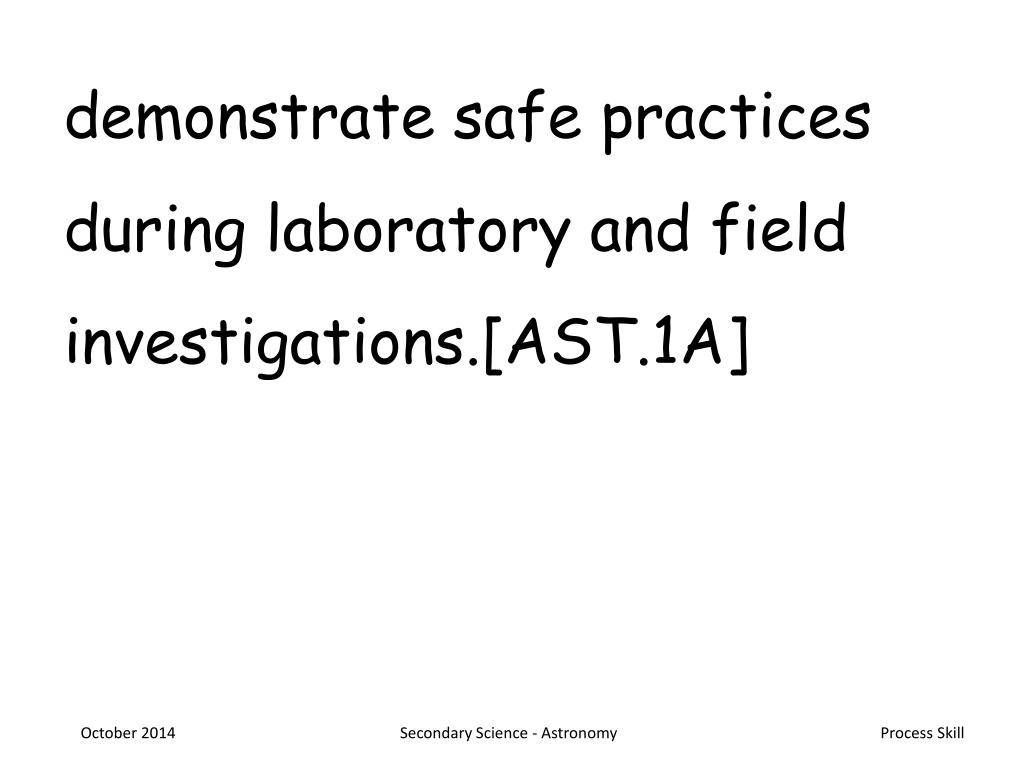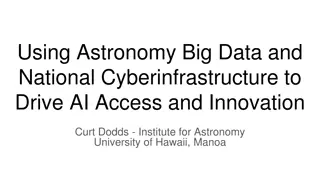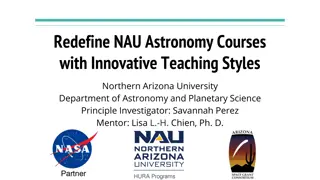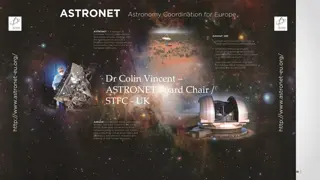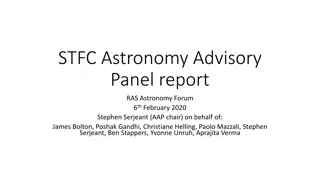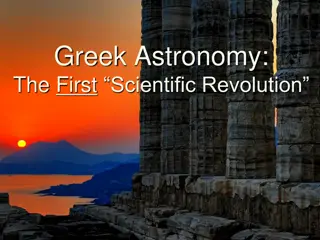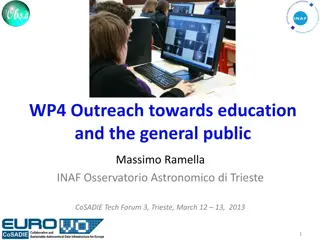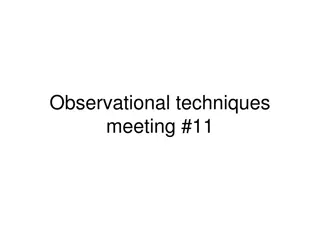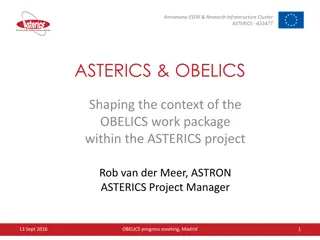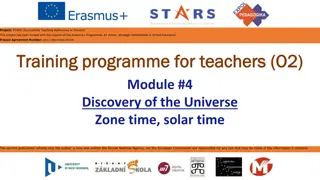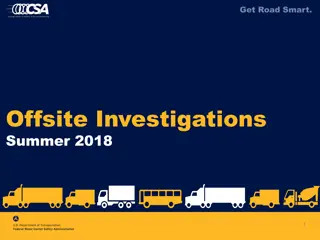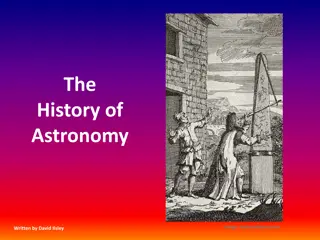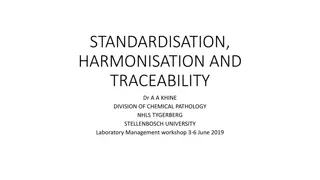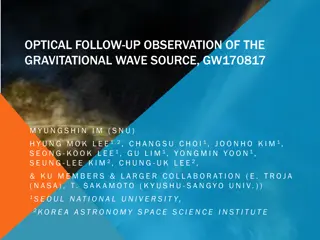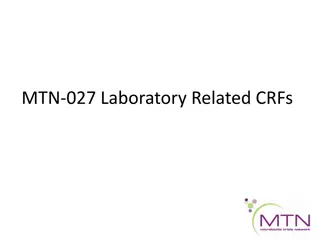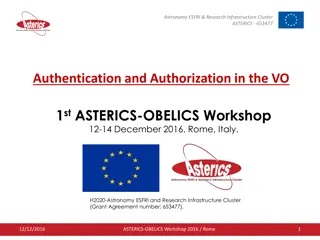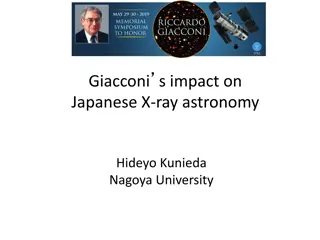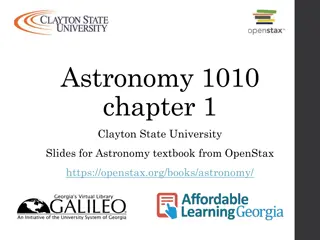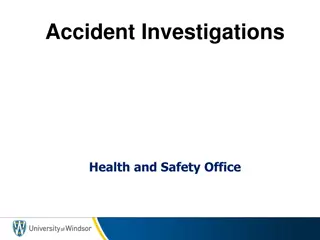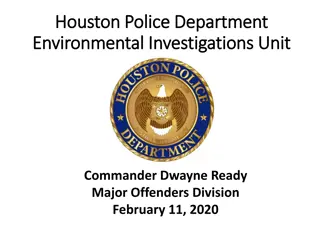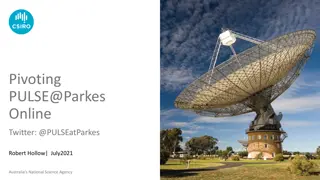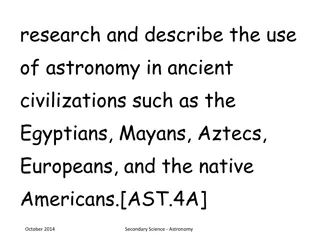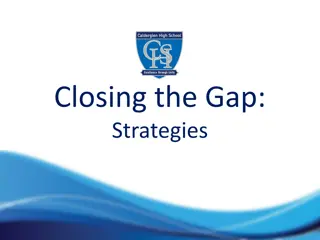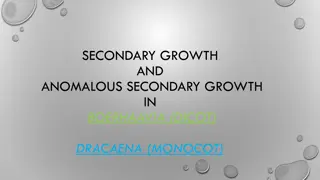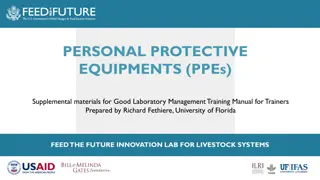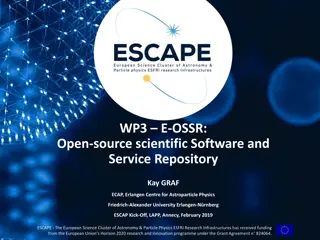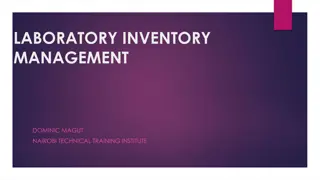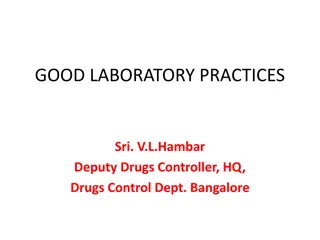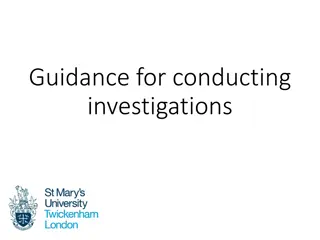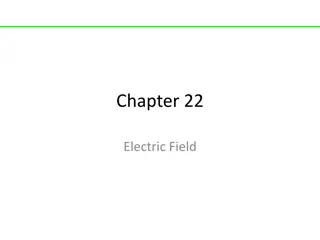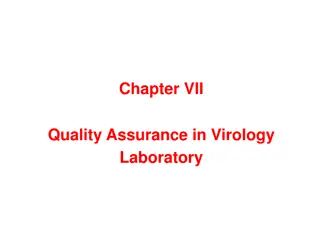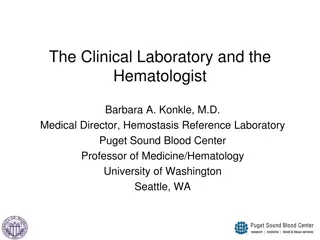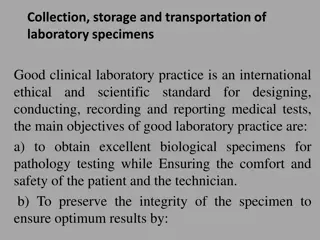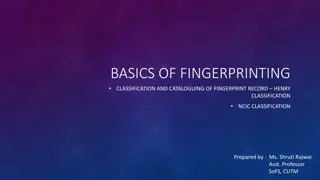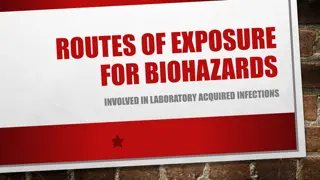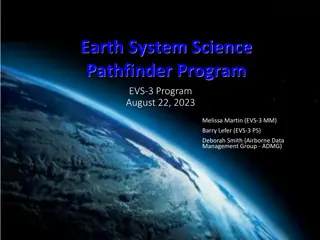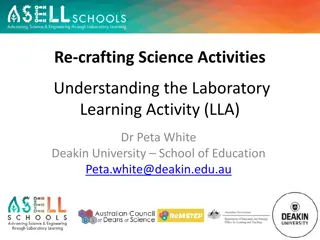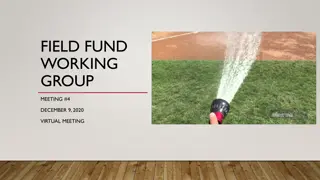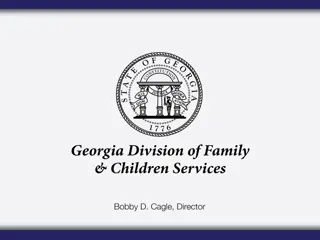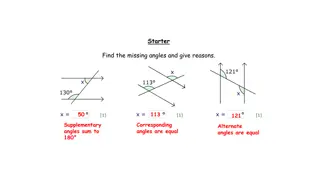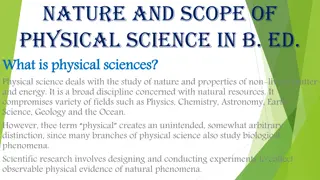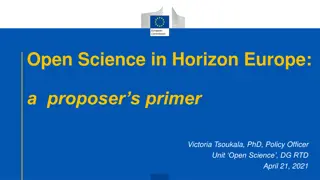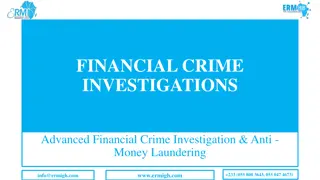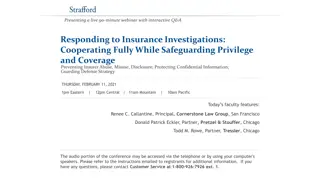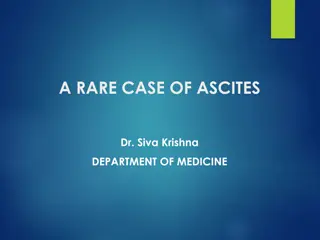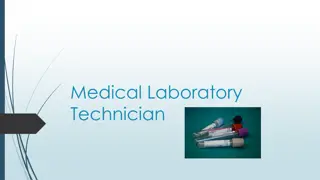Best Practices in Laboratory and Field Investigations for Secondary Science - Astronomy
This content covers various aspects of safe practices in laboratory and field investigations related to secondary science - Astronomy. It includes information on resource conservation, disposal/recycling of materials, understanding the limitations of science, scientific hypotheses, theories, distinguishing between hypotheses and theories, planning investigative procedures, and data collection with accuracy and precision.
Download Presentation

Please find below an Image/Link to download the presentation.
The content on the website is provided AS IS for your information and personal use only. It may not be sold, licensed, or shared on other websites without obtaining consent from the author. Download presentation by click this link. If you encounter any issues during the download, it is possible that the publisher has removed the file from their server.
E N D
Presentation Transcript
demonstrate safe practices during laboratory and field investigations.[AST.1A] October 2014 Secondary Science - Astronomy Process Skill
demonstrate an understanding of the use and conservation of resources and the proper disposal or recycling of materials.[AST.1B] October 2014 Secondary Science - Astronomy Process Skill
know the definition of science and understand that it has limitations, as specified in subsection (b)(2) of this section.[AST.2A] October 2014 Secondary Science - Astronomy Process Skill
know that scientific hypotheses are tentative and testable statements that must be capable of being supported or not supported by observational evidence. Hypotheses of durable explanatory power which have been tested over a wide variety of conditions are incorporated into theories.[AST.2B] October 2014 Secondary Science - Astronomy Process Skill
know that scientific theories are based on natural and physical phenomena and are capable of being tested by multiple independent researchers. Unlike hypotheses, scientific theories are well- established and highly-reliable explanations, but may be subject to change as new areas of science and new technologies are developed.[AST.2C] October 2014 Secondary Science - Astronomy Process Skill
distinguish between scientific hypotheses and scientific theories.[AST.2D] October 2014 Secondary Science - Astronomy Process Skill
plan and implement investigative procedures, including making observations, asking questions, formulating testable hypotheses, and selecting equipment and technology.[AST.2E] October 2014 Secondary Science - Astronomy Process Skill
collect data and make measurements with accuracy and precision.[AST.2F] October 2014 Secondary Science - Astronomy Process Skill
organize, analyze, evaluate, make inferences, and predict trends from data, including making new revised hypotheses when appropriate.[AST.2G] October 2014 Secondary Science - Astronomy Process Skill
communicate valid conclusions in writing, oral presentations, and through collaborative projects.[AST.2H] October 2014 Secondary Science - Astronomy Process Skill
use astronomical technology such as telescopes, binoculars, sextants, computers, and software.[AST.2I] October 2014 Secondary Science - Astronomy Process Skill
in all fields of science, analyze, evaluate, and critique scientific explanations by using empirical evidence, logical reasoning, and experimental and observational testing, including examining all sides of scientific evidence of those scientific explanations, so as to encourage critical thinking by the student.[AST.3A] October 2014 Secondary Science - Astronomy Process Skill
communicate and apply scientific information extracted from various sources such as current events, news reports, published journal articles, and marketing materials.[AST.3B] October 2014 Secondary Science - Astronomy Process Skill
draw inferences based on data related to promotional materials for products and services.[AST.3C] October 2014 Secondary Science - Astronomy Process Skill
evaluate the impact of research on scientific thought, society, and the environment.[AST.3D] October 2014 Secondary Science - Astronomy Process Skill
describe the connection between astronomy and future careers.[AST.3E] October 2014 Secondary Science - Astronomy Process Skill
